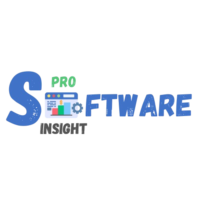Cloud-Based Manufacturing Software: Pros and Cons

Table of Contents:
Intro
- What Is Cloud-Based Manufacturing Software?
The Pros of Cloud-Based Manufacturing Software
- The Cons of Cloud-Based Manufacturing Software
- Is Cloud-Based Manufacturing Software Right for You?
- Conclusion
Manufacturers today face a dynamic and competitive landscape, prompting many to explore modern solutions for operational efficiency. Cloud-based manufacturing software has gained prominence as a tool that streamlines processes and enhances productivity. However, like any innovation, it comes with both advantages and challenges. This article delves into the pros and cons of cloud-based manufacturing software to help you make an informed decision.
What Is Cloud-Based Manufacturing Software?
Cloud-based manufacturing software is a digital solution hosted on remote servers and accessible over the internet. Unlike traditional on-premises systems, these tools don’t require physical hardware installations or extensive IT infrastructure. They often include features like production planning, inventory management, supply chain coordination, and quality control, all integrated into a centralized platform.
The Pros of Cloud-Based Manufacturing Software
- Cost Efficiency
One of the most significant benefits of cloud-based solutions is cost savings. Traditional systems require hefty upfront investments in hardware, licenses, and IT support. In contrast, cloud-based platforms operate on a subscription-based model, allowing businesses to pay only for what they use. This model also eliminates the need for costly upgrades and maintenance. - Scalability
As your business grows, your software needs may evolve. Cloud-based solutions offer unmatched scalability, enabling you to add new users, features, or modules with minimal effort. This flexibility is particularly beneficial for small and medium-sized manufacturers aiming for growth. - Remote Accessibility
With cloud-based software, employees can access the system from anywhere with an internet connection. This remote accessibility enhances collaboration among teams, especially for businesses with multiple locations or those incorporating hybrid work models. - Regular Updates and Innovation
Cloud service providers frequently roll out updates to ensure their software remains cutting-edge. These updates often include enhanced security measures, new features, and performance improvements—all without disrupting your operations. - Enhanced Data Security
Contrary to common misconceptions, cloud-based systems often offer superior security compared to on-premises solutions. Providers invest heavily in cybersecurity measures, including encryption, firewalls, and regular audits, ensuring your data is well-protected.
The Cons of Cloud-Based Manufacturing Software
- Dependence on Internet Connectivity
A stable and reliable internet connection is crucial for cloud-based systems. Downtime or poor connectivity can disrupt operations, leading to delays and potential revenue loss. - Recurring Costs
While the subscription model reduces upfront expenses, the recurring costs can add up over time. Businesses must weigh these costs against the long-term benefits to ensure they align with their budget. - Data Privacy Concerns
Storing sensitive business information on external servers may raise privacy concerns. Although cloud providers employ advanced security measures, there’s always a risk of data breaches or unauthorized access. - Limited Customization
Cloud-based solutions may not offer the same level of customization as on-premises systems. Businesses with unique requirements might find it challenging to tailor the software to their specific needs. - Vendor Dependency
Relying on a single provider for critical operations can be risky. If the vendor faces financial issues, changes pricing structures, or discontinues the product, it can disrupt your business.
Is Cloud-Based Manufacturing Software Right for You?
Choosing the right manufacturing software depends on your business’s specific needs and goals. Here are a few questions to guide your decision:
What’s your budget? Evaluate the total cost of ownership, including subscription fees, internet costs, and potential downtime.
How critical is remote accessibility? If your team operates from multiple locations or you plan to scale globally, cloud solutions offer significant advantages.
What are your data security requirements? Discuss security protocols with potential vendors to ensure they meet your standards.
Do you need extensive customization? Assess whether the software’s existing features align with your operational requirements.
Conclusion
Cloud-based manufacturing software can revolutionize how businesses operate by improving efficiency, reducing costs, and enabling greater flexibility. However, it’s essential to weigh the pros and cons carefully before making a decision. By considering your business’s unique needs, goals, and resources, you can determine whether a cloud-based solution is the right move for your manufacturing operations.
